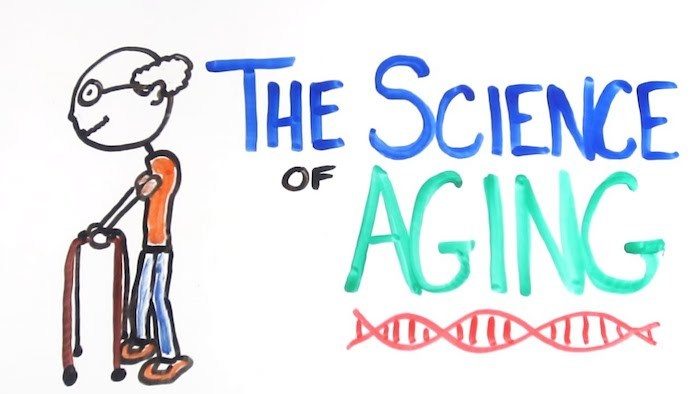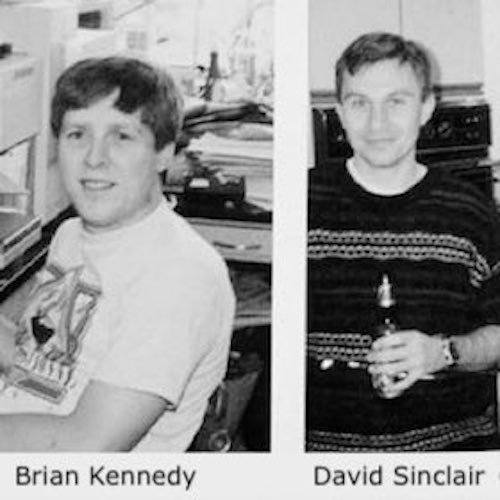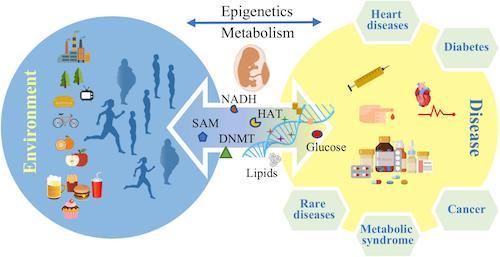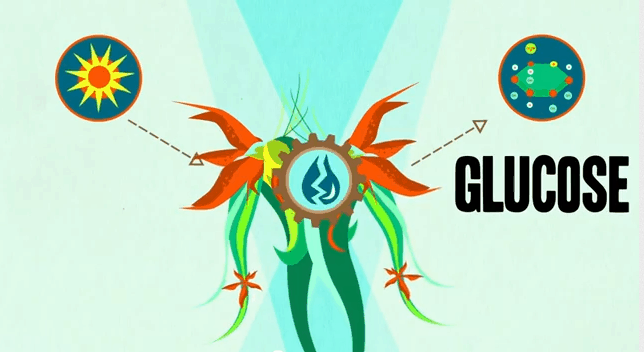Professor Brian Kennedy and Dr. David Sinclair Talk the Science of Aging
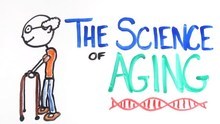
Professor Brian Kennedy and Dr. David Sinclair give you an up to date summary of the latest scientific research about how we can influence how we age. There’s much you can do right now to improve your healthspan — those years you’re healthy and vital — so watch the video.
Professor Brain Kennedy, PhD. the is former head of the internationally renown Buck Institute for Research on Aging. In an expansive video interview with Harvard’s Dr. David Sinclair, they address the question, Do we finally have control over aging?.
I can tell you flat out that, no, nobody can control aging, BUT there’s a lot you can do to slow it down. The science behind that is called Epigenetics, and how that happens, and a lot more, is covered in the video.
Kennedy and Sinclair go way back to their postdoc years working in the lab of their mentor, Dr. Lenny Guarantee, himself a world-renown scientist and Founder of Elysium Health.
For those of you short on time, and unfamiliar with some of the science of aging (Gerontology), I’ve created a table below that summarizes the topics and provide some context, descriptions and further reading.
Go right to:
- The summary of the video discussion topics, and where to find them in Professor Brian Kennedy’s interview with Dr. David Sinclair.
- The video itself.
- A review of epigenetics and bioage tests.
If you have any questions about any of this, type it in the Comments at the end of this post.
Summary and Timestamp of Professor Brian Kennedy’s David Sinclair Interview on Aging
If you don’t have an hour to spend viewing the video interview below, spend a few minutes to get the gist of it by reading my brief summary and explanation:
| Timestamp | Topic | Joe’s Explanation of the Topic |
| 1:51 | A recent paper about rethinking old drugs and natural products for aging and age-related disease. | Mice are often used as proxies for humans. In this case, the mice will be tested to see if various molecules and compounds accessible to the public can improve healthspan. If so, human trials will test such natural products on humans. |
| 7:57 | Dr. Sinclair reviews the current status of age-related disease. | The point here is that people age faster than they need to in terms of becoming frail and getting age-related diseases. |
| 9:54 | Dr. Sinclair describes the epigenome. | Whereas the genome is all genetic information of an organism (DNA), the the epigenome are the structures and systems that control the expression of genes in the genome. The genome is basically unalterable, but the epigenome is influenced by lifestyle and environmental factors. Only about 25% of how you age is due to your genes; the rest by the epigenome. |
| 11:30 | How biological age is measured. | There are various ways to measure biological age via epigenetic markers that can be discerned by analyzing blood and using algorithms.
See a review of epigenetics and bioage tests. |
| 13:23 | The impact of broken chromosomes on aging. | A chromosome is a long DNA molecule with part or all of the genetic material of an organism. Broken chromosomes distract epigenetic regulators such as sirtuins, which are a family of signaling proteins (enzymes) involved in metabolic regulation. |
| 14:35 | NAD+ precursors such as NR and NMN can activate sirtuins, which in mouse models have the effect of revitalizing certain physiological functions of the mice. | Can NAD+ Precursors NR and NMN Make You Young Again?
Right now, the closest thing we have to a safe, accessible anti-aging pill are NAD+ precursors; namely, NR and NMN. Learn how they can work to make you biologically younger. The Best 2 NAD Precursors To Extend Your Healthspan The two best NAD precursors are two molecules: one called NMN and the other NR. There’s a debate about which better converts into NAD, thereby keeping it at healthy, youthful levels. This is a very important objective if your aim is to extend your healthspan (perhaps even your lifespan) due NAD’s role in activating a family of proteins called sirtuins, our longevity genes. |
| 21:21 | Why yeast is an excellent animal model to study aging pathways, the results of which can be relevant for humans. | See: Animal Models of Aging Research: Implications for Human Aging and Age-Related Diseases. |
| 26:14 | We’re on the cusp of being able to reprogram genes and reverse epigenetic age. | See: |
| 34:23 | Why Dr. Sinclair thinks that soon treating aging will be easier than treating cancer. | Sinclair says that cancer is hundreds of different diseases, whereas the main drivers of aging are common across the body. For instance, the protectors against aging, such as the sirtuins, are common in tissues. If those are targeted, Sinclair thinks there’s a good chance that anti-aging therapies can be developed faster than cancer therapies. Also, in the case of aging, “we can do a million experiments today that would take a decade back in the 1970s, and so the ability to develop drugs and find new ways to treat aging is exponentially faster than it used to be.” |
| 36:01 | Professor Brian Kennedy briefly explains that basically aging comes down to disruptions in the body’s ability to maintain homeostasis. | Remarks that treating aging as a preventative approach is about maintaining homeostasis (balance), and possibly reprogramming events that are happening during the aging process. Cancer, however, is a state of disequilibrium, and that state is challenging to reverse. It’s easier to “catch things before they go wrong; it’s going to be easier than waiting until they go wrong.” |
| 36:30 | The importance of activated sirtuins to slow down the aging process. Sinclair’s lab work shows that this activation can happen by upregulating a coenzyme in a cell’s mitochondria (the cell’s “energy factory”) called NAD+ via NAD+ precursors, such as NR and NMN. | Sirtuins are a class of proteins (enzymes) that are thought to regulate aging. Dr. Sinclair is a vocal proponent of the importance of sirtuins in the aging process. Of the 7 sirtuins in mammals, this is particularly true for the first (SIRT1) and the sixth (SIRT6). |
| 44:01 | Professor Brian Kennedy asks Dr. Sinclair to speak about the current and expected human trials to examine the potential usefulness of NR, Rapamycin and Metformin as treatments for aging. | Elysium Health has conducted human trials to test it’s NR product, Basis, and found it could raise NAD+ levels without side effects.
Can Elysium’s “Basis” Pill Really Make You Younger? Funding is being sought to finance a human trial for Metformin called TAME. In lab tests, Rapamycin clearly shows lifespan improvements in various animal models, but it can be dangerous for humans. |
| 55:38 | Professor Brian Kennedy asks Dr. Sinclair about his views on taking supplements. | Sinclair is very upfront about his supplement regime, but is careful to not recommend that anybody else follow what he does.
Importantly, he underscores that there may be unintended consequences to taking many different supplements, because it’s not known how they will interact. If you do take supplements without a lot of history, it’s important that you get regular blood work done to help quantify their effects. Dr. David Sinclair Supplements For A Long and Healthy Life Dr. David Sinclair supplements with compounds that are shown to be effective in his anti-aging research. Learn about his Information Theory of Aging and what supplements and foods he consumes to optimize the functioning of three primary longevity cellular pathways. |
Video: How We Can Influence Aging
Scroll up to read my summary and explanation of some of the science covered in the video.
Epigenetics and BioAge Tests
Illustration from Epigenetics and Metabolism in Health and Disease. Read this summary of the recent advances in uncovering the interplay between epigenetics and metabolic pathways on a cellular level and highlight potential new avenues for alternative treatment strategies.
Much was said about epigenetics and biological tests based on epigenetic markers, or tags, that control which genes are expressed (turned on), or not (turned off).
Basically, epigenetics is the science about how lifestyle and environmental factors control gene expression. Genes (DNA) are fixed; they don’t change (yet), but how they impact your life is malleable.
Scroll down for more about epigenetics and biological tests.
If intrigued, learn more about one of the most accurate bioage tests you can do if you have just nine blood markers.
Behavior and Epigenetics – The Surprising Reasons Your Kids Care About Your Genetics
If you have a sweet tooth, are overweight, have kids, want to have kids, or just simply have genes, read (and watch) this how Hank Green and I weave together a tale about sugar, obesity, behavior and epigenetics.
3 Ways to Increase DNA Methylation and Get Biologically Younger
When you increase DNA methylation, you take a big step to improving your healthspan by decreasing your bioage relative to your chronological age. The science on this is pretty definitive, so let’s dive in to learn about DNA methylation, its influence on the aging process and the three ways you can increase DNA methylation.
Five Biological Age Tests That Predict Your Real Age
Many of us are interested in biological age tests because we know that people age at different rates — some are biologically younger than their chronological years, and others are older — and we wonder, Is my body younger or older than my calendar age?”
Take the Real Age Test and Discover Your Biological Age
Take the real age test and find out if your body is older or younger than your chronological age. This test is based on scientific studies and abstract math, but all you need do is plug in some numbers from your blood work lab report.
I hope you got some value from this post. If you did, please share it on your social media — and subscribe to the Sunday Newsletter.
Last Updated on February 28, 2022 by Joe Garma

